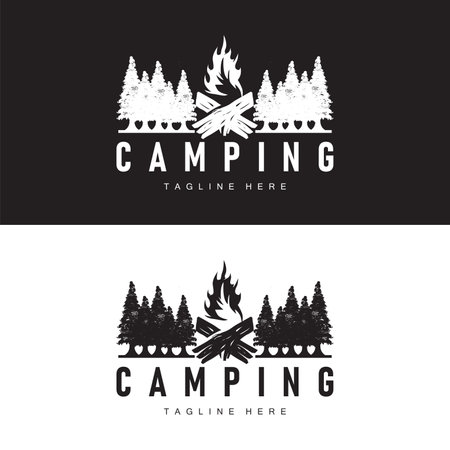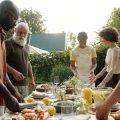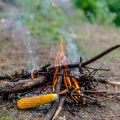Introduction to Campfire Cooking in the UK
Campfire cooking has always held a certain charm for those who love the great outdoors, and in recent years, it’s seen a revival amongst British adventurers. Whether you’re hiking through the Lake District or enjoying a family weekend in a rural campsite, the allure of preparing meals over an open flame is hard to resist. In the UK, this form of outdoor cooking is deeply rooted in tradition, from classic Scout campfires to communal gatherings at local parks or beaches. The growing popularity of wild camping and bushcraft skills has helped reintroduce campfire cooking as not just a nostalgic pastime but also a practical and rewarding way to connect with nature. As more Britons seek escape from city life and embrace outdoor pursuits, campfire cooking stands out for its simplicity, sociability, and the unbeatable taste of freshly cooked food beneath the open sky.
Essential Tools and Equipment
When it comes to campfire cooking in the UK, having the right tools can make all the difference between a memorable meal and a muddle. The often unpredictable British weather, coupled with diverse terrains from rugged coasts to lush woodlands, demands equipment that’s both robust and versatile. Below is a practical guide to selecting essential gear tailored for British conditions.
Fire Pits and Grills
A portable fire pit is invaluable for controlled, safe fires—especially where open flames are restricted or discouraged. Many campsites across the UK require raised fire pits to protect the ground. Pairing your fire pit with a sturdy grill grate ensures you can cook everything from sausages to toasties with ease. Look for stainless steel or heavy-duty iron options that withstand repeated use and exposure to the elements.
Recommended Fire Pits and Grills
| Item | Key Features | UK Suitability |
|---|---|---|
| Portable Fire Pit | Foldable, easy to transport, ash catcher | Ideal for campsites, beaches, woodlands |
| Stainless Steel Grill Grate | Rust-resistant, adjustable height | Handles British rain and frequent use |
| Kettle BBQ Grill | Lid for wind protection, temperature control | Perfect for blustery days |
Cast Iron Cookware
If you’re serious about campfire feasts, cast iron pans and Dutch ovens are worth their weight (literally). They retain heat superbly and distribute it evenly—a boon when dealing with uneven campfire embers. While they are heavier than aluminium alternatives, their durability and versatility outshine lighter cookware. A well-seasoned cast iron skillet can handle anything from bacon butties to hearty stews.
Essential Cast Iron Pieces
- Skillet – For frying eggs, mushrooms, or black pudding.
- Dutch Oven – Perfect for slow-cooked dishes like stew or cobbler.
- Griddle Plate – Great for making pancakes or flatbreads.
Indispensable Utensils
The right utensils round out your kit. Long-handled tongs prevent singed knuckles, while a heatproof spatula makes flipping burgers straightforward. Don’t forget a sturdy pair of fire gloves and a reliable lid lifter if you’re using Dutch ovens.
Utensil Checklist for UK Campfires:
- Long-handled tongs and spatula
- Heatproof gloves (wool-lined if camping in colder months)
- Lid lifter (for Dutch oven safety)
- Campsite-safe chopping board and sharp knife
- Emaille mugs and plates – lightweight yet hard-wearing against drops on stony ground
- Kettle or billy can for brews—no British campfire is complete without tea!
Selecting kit built for British weather ensures your campfire meals are enjoyable whatever the forecast. Investing in these essentials means less faff at camp and more time savouring the great outdoors.

3. Sourcing and Managing Firewood in Britain
When planning a campfire cooking session in the UK, sourcing suitable firewood is a crucial step that can shape your entire experience. The wood you use not only impacts how easily your fire lights, but also influences the heat output and even the taste of your food. In Britain, our climate and native woodlands offer a range of options, but its important to approach firewood collection with both knowledge and responsibility.
Understanding Local Firewood Types
Native British hardwoods such as oak, ash, and beech are prized for their long burn times and steady heat—ideal for sustained cooking. Birch is another common choice, valued for its easy ignition due to its papery bark, though it burns more quickly than denser woods. Avoid using softwoods like pine or spruce where possible; they tend to spit resin and burn unevenly, creating more smoke than heat. Well-seasoned wood is essential: freshly cut (or “green”) wood contains too much moisture and will smoulder rather than burn cleanly.
Responsible Foraging Practices
Foraging for firewood on-site can be tempting but must be approached with care. In most of the UK, collecting deadwood from the ground is generally acceptable if done sparingly and without damaging living trees. Never cut branches or fell trees—this is both illegal and harmful to woodland ecosystems. Always check with landowners or campsite managers before gathering any wood, as many sites prohibit foraging altogether to protect natural habitats.
Legal Considerations and Campfire Etiquette
The rules around campfires vary considerably across Britain. Wild camping laws differ between England, Wales, Scotland, and Northern Ireland. In Scotland’s access land, small fires are permitted with care under the Outdoor Access Code, but in England and Wales you must have explicit permission from landowners or use designated fire pits on campsites. Many popular campsites will provide logs or allow you to purchase locally sourced firewood—this is usually the safest and most sustainable option.
Summary Advice for Campfire Cooking Success
To ensure a successful—and legal—campfire cooking experience in the UK, plan ahead: research your location’s regulations, source seasoned local hardwoods where possible, and always prioritise environmental stewardship. By respecting local guidelines and ecosystems, youll help preserve Britains beautiful countryside for future campers while enjoying the unique pleasure of open-fire cooking.
4. Techniques for Building and Maintaining a Campfire
Building and maintaining a campfire in the UK can be a rewarding experience, but the unpredictable British weather means you’ll need to adapt your approach. Here’s a step-by-step guide, tailored for local conditions and mindful of countryside codes.
Step-by-Step Methods for Different Weather Conditions
| Condition | Technique | Tips |
|---|---|---|
| Dry & Calm | Traditional teepee or log cabin structure using dry kindling and wood. | Always clear debris; build on bare soil or gravel where possible. |
| Windy | Create a low, compact fire with windbreaks (e.g., rocks or logs) on the windward side. | Face the opening away from prevailing winds; keep flames small to prevent spreading. |
| Damp/Rainy | Use a raised platform of dry sticks; start with waxed cotton balls or firelighters under shelter (tarpaulin, if allowed). | Gather deadwood from standing trees (never live wood); keep spare tinder dry in sealed bags. |
Countryside Code and Regulations: What You Need to Know
- Permission: Always obtain landowner consent before lighting a fire. Many public areas prohibit open fires.
- Leave No Trace: Extinguish fires completely with water, scatter ashes when cool, and return site to original state.
- Sustainable Sourcing: Use fallen wood only; never cut living branches or damage habitats.
- Fire Size: Keep fires small and manageable—this is both safer and less likely to attract unwanted attention.
- No Fire Zones: Respect all signage indicating restrictions, especially during dry spells and in sensitive wildlife areas.
Maintaining Your Campfire Safely
- Add fuel gradually—avoid overloading which can cause loss of control.
- Keep a bucket of water or sand nearby at all times for emergencies.
- Supervise the fire continuously; never leave it unattended, even briefly.
- Douse thoroughly before leaving—embers can smoulder unnoticed in British peat soils, risking wildfires.
A Final Word on Responsibility
The joy of campfire cooking in the UK lies as much in respecting the landscape as in sharing good food. By following these techniques and countryside regulations, you help protect wild spaces for future adventurers while enjoying a taste of outdoor Britain.
5. Classic British Campfire Recipes
Whether you’re gathered around a crackling fire in the Lake District or setting up camp on the Cornish coast, classic British recipes lend themselves beautifully to the great outdoors. Here’s a selection of both traditional and modern favourites that are perfectly suited for campfire cooking.
Jacket Potatoes
No British campfire feast is complete without jacket potatoes. Simply wrap large baking potatoes in foil and nestle them directly in the embers. Rotate occasionally and after about 45 minutes, you’ll have fluffy, steaming potatoes ready for your favourite toppings—think mature cheddar, baked beans, or even a dollop of Branston pickle for that unmistakably British tang.
Toad in the Hole Skillet
A rustic twist on this pub classic involves cooking sausages over the fire until browned, then pouring over a simple Yorkshire pudding batter in a heavy skillet or Dutch oven. Cover with foil and allow to bake near the coals until puffed and golden. Serve with onion gravy made in a separate pan for an authentic touch.
Bacon Butties
Sometimes, simplicity is king. Thread rashers of back bacon onto skewers or lay them on a grill rack over hot coals. Serve crispy bacon inside soft white rolls with lashings of brown sauce or ketchup—a proper British breakfast by the fire.
Smoked Mackerel Parcels
For those camping by the sea, fresh fish is a must. Lay fillets of smoked mackerel (or any locally caught fish) atop sliced new potatoes and spring onions on a sheet of foil. Add a knob of butter, season well, and seal into a parcel before placing in the embers. In 15–20 minutes, you’ll have moist, flavourful fish infused with smoky aromas.
S’mores with a UK Twist
Though s’mores are often associated with American camping, Brits can create their own version using digestive biscuits, milk chocolate, and marshmallows. Toast marshmallows over the flames and sandwich them between biscuits and chocolate for gooey perfection—ideal for sharing around the fire.
Tips for Success
Remember to prep as much as possible at home: mix batters in advance, portion ingredients into containers, and bring sturdy foil or reusable pans. These small steps ensure your campfire cooking experience is relaxed, delicious, and distinctly British—whatever the weather decides to do.
6. Staying Safe and Respectful Outdoors
Cooking over a campfire in the UK is an immensely rewarding experience, but it comes with its responsibilities. To ensure your outdoor adventures are both enjoyable and sustainable, it’s vital to understand and follow essential safety practices, etiquette, and respect for nature.
Fire Safety: The British Way
Unlike some countries, wildfires are not common in the UK, but careless campfires can still cause significant damage. Always check local regulations before lighting a fire—even in remote areas—and use established fire pits where available. Keep your fire small and manageable; never leave it unattended. Have water or soil at hand to extinguish the flames completely when you’re done. In many national parks and popular walking areas, open fires may be prohibited altogether, so consider using a portable camping stove as an alternative.
Wild Camping Etiquette
While Scotland offers more freedom under the Scottish Outdoor Access Code, wild camping elsewhere in the UK requires permission from landowners. Always pitch your tent discreetly, away from paths and buildings, and stay only one night in each spot. Keep noise to a minimum and avoid large groups to preserve the tranquillity of the countryside.
Leave No Trace Principles
The Leave No Trace philosophy is central to responsible outdoor cooking in the UK. Pack out everything you bring—including food scraps, foil, and packaging—and restore your campsite to its original state before leaving. Avoid burning rubbish on your fire, as this can harm wildlife and pollute the environment.
Respecting Local Wildlife
The British outdoors is rich in wildlife, from curious red squirrels to ground-nesting birds. Protect these creatures by keeping food securely stored, never feeding wild animals, and sticking to established trails to avoid disturbing habitats. Remember that dogs should be kept on leads during nesting season or near livestock.
By following these essential practices—prioritising safety, respecting landowners rights, embracing Leave No Trace principles, and safeguarding wildlife—you’ll help ensure that campfire cooking remains a cherished tradition for generations of UK adventurers.


